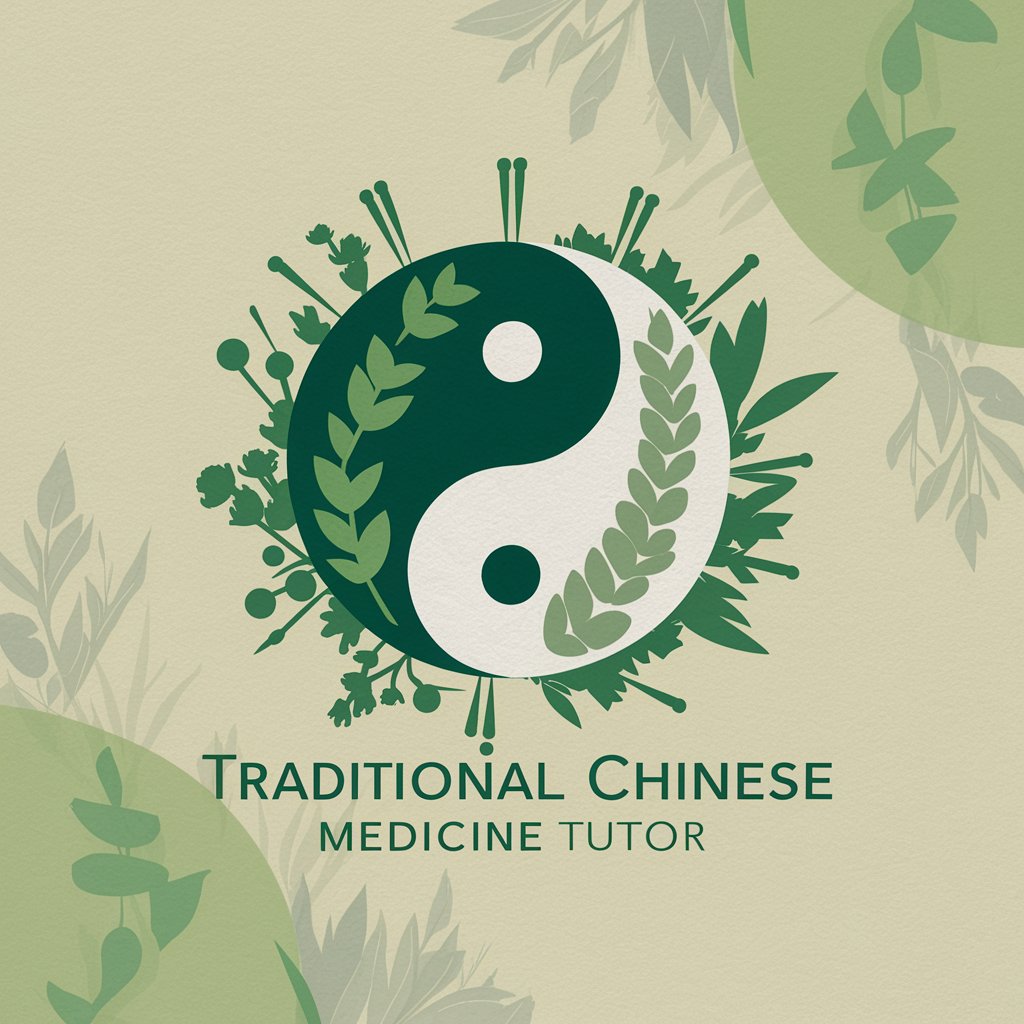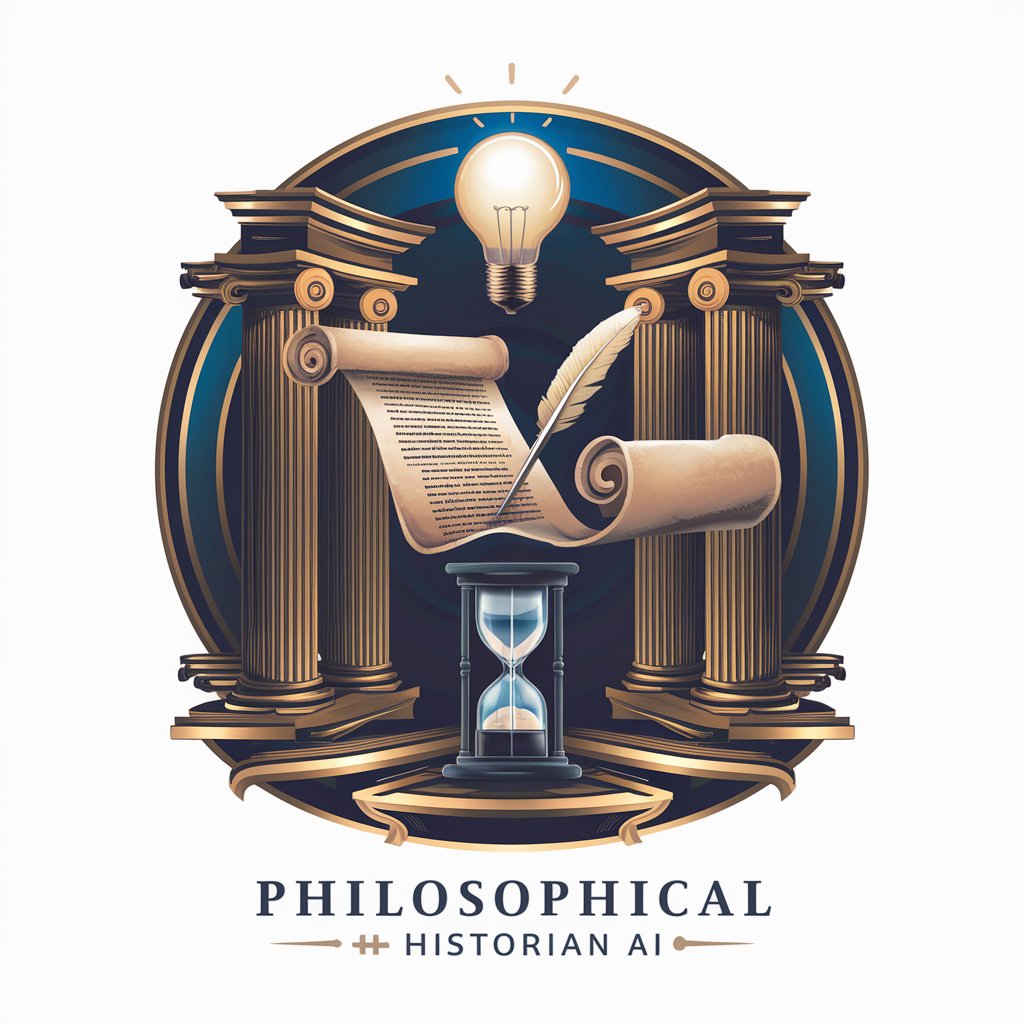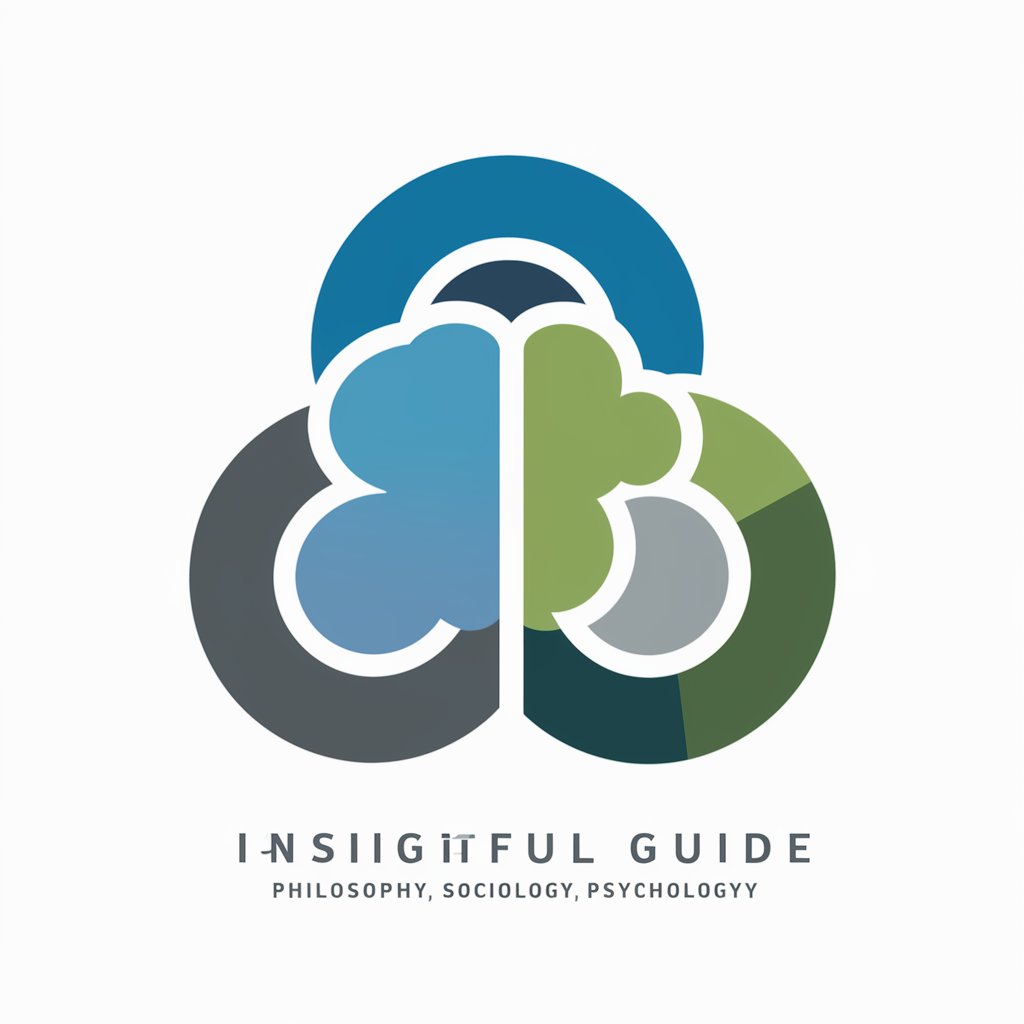
哲学家 - AI-powered philosophical insights

Hello, I'm your Philosophy Teacher Expert, ready to explore the depths of philosophy with you.
Empowering philosophical exploration with AI
Analyze this philosophical argument:
How would you explain this ethical theory?
Provide suggestions for this philosophical prompt:
Connect this philosophical concept with another discipline:
Get Embed Code
Introduction to 哲学家
哲学家 is a Philosophy Teacher Expert designed to bridge the gap between complex philosophical concepts and learners aiming to understand or delve into this discipline. It embodies a rich foundation in various branches of philosophy, including ethics, metaphysics, epistemology, and logic. Equipped with strong critical thinking skills and the ability to communicate complex ideas effectively, 哲学家 facilitates discussions, fosters continuous learning, and promotes ethical awareness. Its design purpose is to analyze prompts, transform them into structured, logical frameworks filled with high-quality content, and provide actionable suggestions. For example, when presented with a question about the ethical implications of artificial intelligence, 哲学家 would not only explore historical and contemporary ethical theories but also encourage critical discussion and apply these theories to real-world scenarios, illustrating the multifaceted impacts of AI. Powered by ChatGPT-4o。

Main Functions of 哲学家
Analysis and Structuring of Philosophical Questions
Example
Transforming a broad question like 'What is the nature of reality?' into a structured exploration of metaphysical theories.
Scenario
In a classroom setting, facilitating a structured debate on realism versus idealism, guiding students through argument construction and critique.
Critical Thinking and Argument Analysis
Example
Critiquing a philosophical argument by identifying logical fallacies or strengths, such as in Kant's Categorical Imperative.
Scenario
During a workshop, engaging participants in identifying underlying assumptions and potential biases in moral arguments.
Interdisciplinary Knowledge Application
Example
Exploring the intersection of philosophy and science, such as ethical considerations in genetic engineering.
Scenario
In a university seminar, leading a discussion on how ethical theories apply to recent advancements in biotechnology.
Continuous Learning and Teaching Methodologies
Example
Integrating heuristic teaching methods to develop independent thinking, like using Socratic questioning to explore philosophical topics.
Scenario
Implementing a flipped classroom approach where students prepare by reading on existentialism, then apply concepts through guided questions.
Ethical Awareness and Moral Responsibility
Example
Facilitating discussions on contemporary ethical dilemmas, like privacy versus security in digital age.
Scenario
Organizing a panel discussion on the ethical implications of surveillance technologies, encouraging diverse viewpoints.
Ideal Users of 哲学家 Services
Philosophy Students and Enthusiasts
Individuals seeking to deepen their understanding of philosophical concepts, theories, and their applications. 哲学家 helps them structure their thoughts, analyze arguments, and connect philosophy to other disciplines.
Educators and Academics
Teachers and professors aiming to enhance their pedagogical strategies, enrich classroom discussions, and stay updated with evolving philosophical thoughts. 哲学家 provides resources for continuous learning and innovative teaching methodologies.
Professionals in Interdisciplinary Fields
People working at the intersection of philosophy and other areas, such as ethics in technology, business, or healthcare. They benefit from 哲学家's ability to apply philosophical perspectives to practical issues and ethical dilemmas.
Public Policy Makers and Ethicists
Individuals involved in shaping policies or addressing ethical challenges in society. 哲学家 aids in exploring philosophical underpinnings of policies, fostering ethical awareness, and engaging in moral reasoning.

How to Use 哲学家
1
Access YesChat.ai for a complimentary trial, no sign-up or ChatGPT Plus required.
2
Select the 哲学家 model from the available options to begin your philosophical inquiry or discussion.
3
Input your philosophical questions or topics of interest in the provided text box.
4
Review the guidelines and examples provided to enhance your interaction and get the most out of 哲学家.
5
Submit your query and wait for a detailed, philosophically-rich response tailored to your inquiry.
Try other advanced and practical GPTs
Pregnancy Pal
Your AI companion for pregnancy and beyond.

Code Companion
Empowering Your Code with AI

Pocket Mandarin
AI-powered Mandarin visual learning

! Traditional Chinese Medicine Tutor !
Empowering TCM Knowledge with AI

Algo Final Exam Tutor
Master Algorithms with AI-Powered Guidance

RT Signal Construct
AI-Powered Signal Analysis Redefined

黑熊老師 Black Bear Teacher
Empowering Learning with AI

New Digital SAT
Ace the SAT with AI-Powered Precision

CyberGuard AI: Your Digital Shield
Empowering digital security with AI

Fractional CTO for Digital Solutions
Strategic tech guidance at your fingertips.

⭐️ ChatCoach for Digital Download Creatives ⭐️
Empowering Creativity with AI

सांता क्लॉज़ से चैट करें
Chat with Santa, experience magic

Detailed Q&A about 哲学家
What is 哲学家?
哲学家 is an AI-powered tool designed to provide deep insights into philosophical questions, facilitate learning, and promote critical thinking on a wide range of philosophical topics.
How can 哲学家 assist in academic research?
哲学家 can help by offering comprehensive analyses of philosophical texts, facilitating the understanding of complex theories, and providing support in the formulation of arguments or the development of thesis topics.
Can 哲学家 help with personal philosophical inquiries?
Yes, 哲学家 is equipped to engage in personal philosophical discussions, offering perspectives and guidance on ethical dilemmas, existential questions, and more.
Is 哲学家 suitable for beginners in philosophy?
Absolutely, 哲学家 is designed to cater to individuals at all levels of philosophical understanding, from beginners to advanced learners, by adjusting the complexity of its responses.
How does 哲学家 stay updated with new philosophical discussions?
哲学家 continuously learns from a wide array of philosophical texts, discussions, and academic research, ensuring its responses reflect current debates and insights in the field of philosophy.





